Published in January 2021 and written by Patrick Bennett, this softcover book measures 234mm x 165mm and has 96 pages and 180 photographs. It has a published price of £15.99 but at the time of writing it can be obtained online from Amberley Publishing at £14.39 and from Amazon for around £11
The Chilterns consist of a band of chalk hills to the north-west of London stretching from Oxfordshire to Hertfordshire. They were directly on the routes of five major railways companies to the North and Midlands, namely the Great Northern, the Midland, the London & North Western, the Great Central, and the Great Western. The book has five chapters, each covering one of these main lines.
As well as the main lines, there were a large number of branches, most of which have now closed.
The book also includes an overview of these branches, from their construction and operation, through their closures in the 1960s, to their situation today.
Some of the branch descriptions show that sometimes they were formed from a merger with other companies, with the joint companies giving rise to some unusual abbreviations. However, these lines are often referred to by their abbreviations without any definition of what the abbreviation stands for. It would have been beneficial to include a list of the abbreviations used, especially as there appears to be sufficient space on page 6 for their inclusion.
Trying to cover five main lines and ten branches within the book’s 96 pages inevitably means that each branch can only receive brief coverage. However, within that constraint, the author has done a good job of bringing out the many different characteristics of the lines.
A useful map at the beginning of the book shows the various lines, with different colours to differentiate between them. There would seem to be sufficient space below the map to include a list of the abbreviations used in the book,
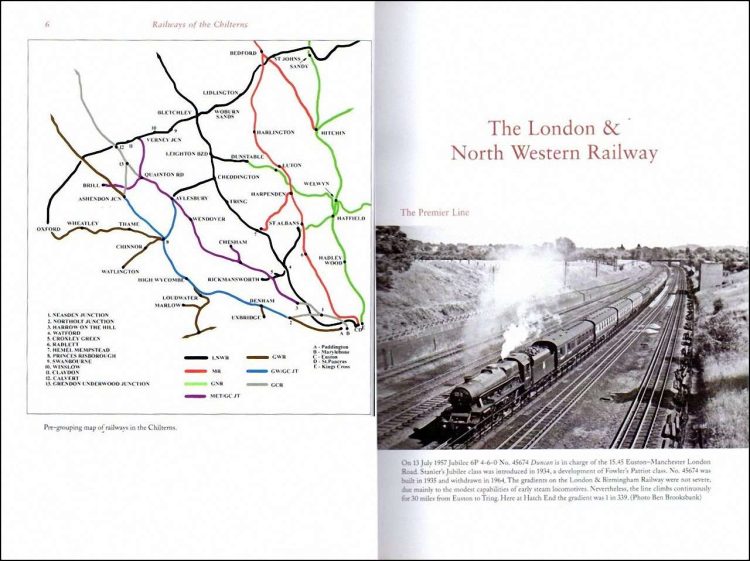
These photos are of a branch that used to run from Harpenden on the Midland main line to Hemel Hempstead, and which was known locally as “The Nickey Line”. As this was a local name for the line, it would have been useful to know where the name came from. Also, even though Hemel Hempstead is on the West Coast main line, the book doesn’t make clear that there is no connection between the West Coast main line and the Nickey line.
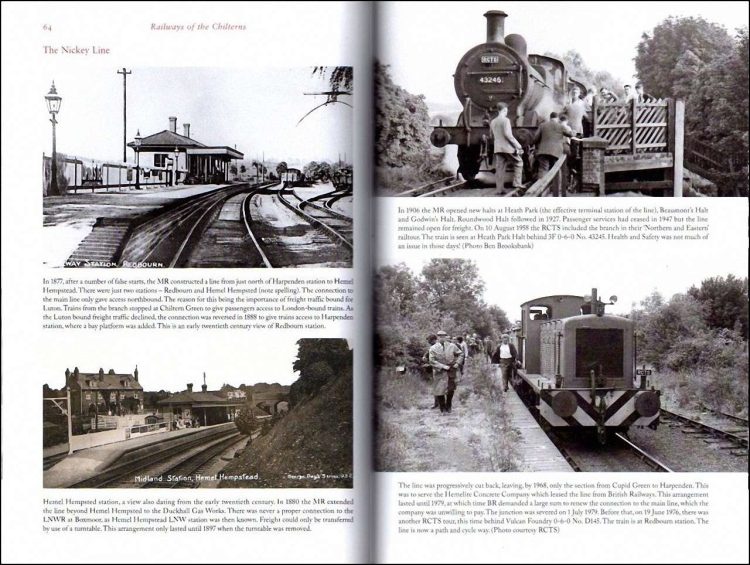
Although the book includes a very good Railway Clearing House map of the lines around Princes Risborough and Aylesbury, it would have been useful to include equally detailed maps of some of the other lines in the book, especially the London & North Western with its branches to Aylesbury, Oxford and Cambridge, Leighton Buzzard and Dunstable, St. Albans, and Rickmansworth. Similarly, the Great Northern with its branches to Hertford, Luton, and Dunstable, and Hatfield to St. Albans.
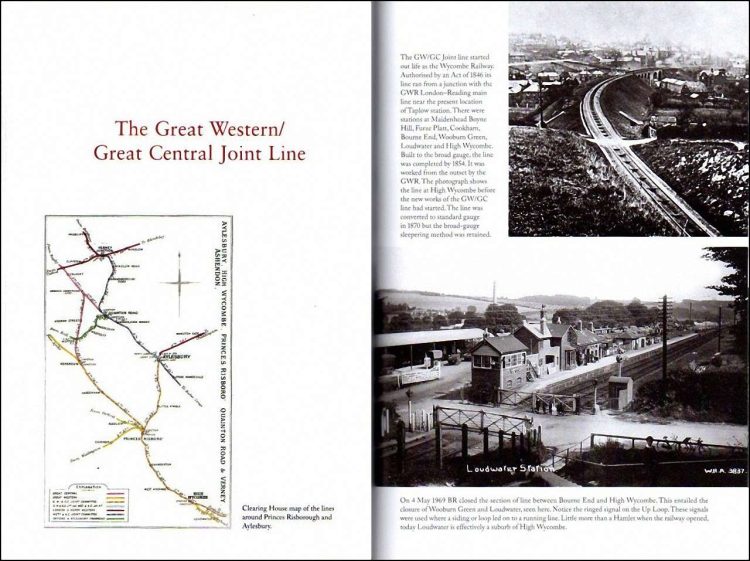
The author is to be commended for sourcing a good selection of historic photos as in the examples below. Elsewhere in the book, they range from a Problem class at Bletchley shed in the late-1800s to the latest electric stock taken in 2019. A whole page of Acknowledgements gives a good idea of the number of different photographers whose efforts are included.
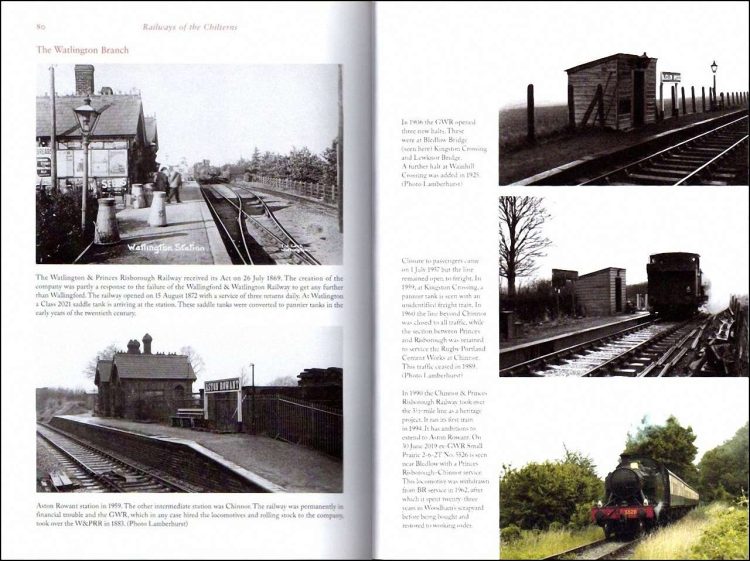
Typifying the book’s title of Railway’s of the Chilterns was the Metropolitan/Great Central Joint Line. The author’s choice of photos on these pages justify the line’s title with a train on the former Great Central heading for Marylebone, a Metropolitan Railway steam locomotive at Rickmansworth, a Metropolitan Railway heading towards Rickmansworth where it will hand over to steam traction, and an LNER steam locomotive on a Chesham branch service.
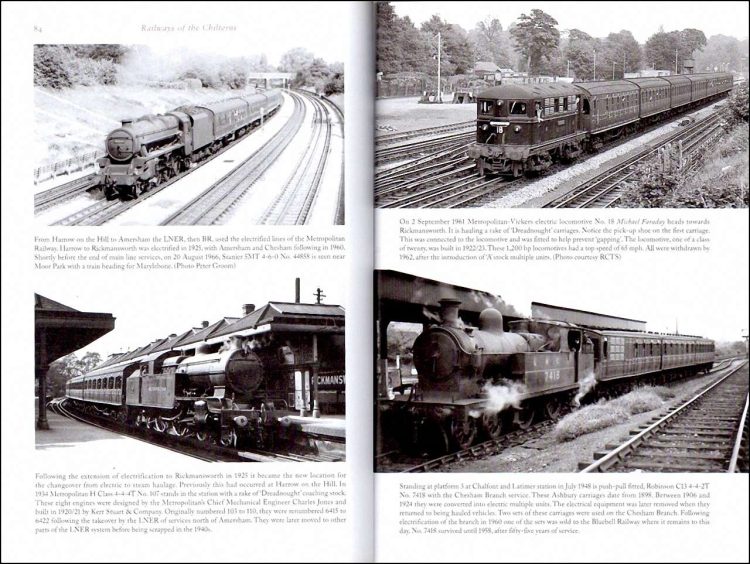
One of the strangest locomotives ever to appear on a British railway was an Aveling & Porter 0-4-0 on the Brill branch as seen at the top-left below. Each of the photos on these pages are clearly from another age, and the author has done well to source them for inclusion in his book.
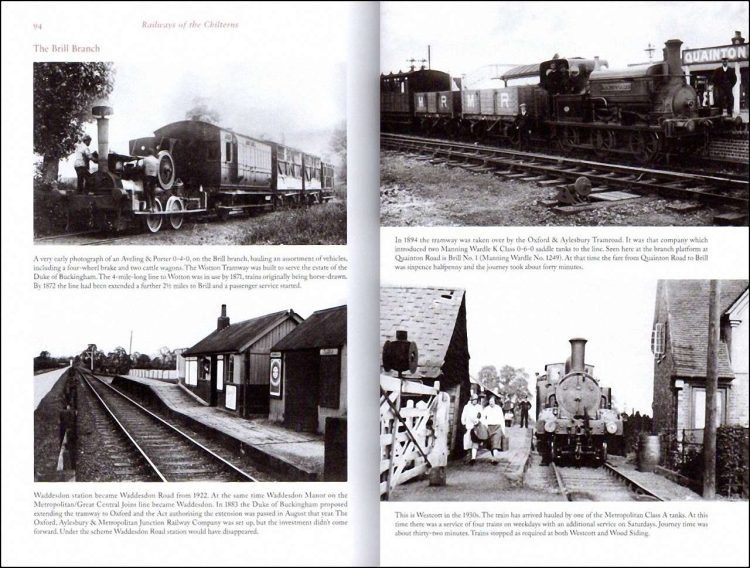
In summary, the author has done well to produce an evocative book of what at first sight seemed a challenging task of illustrating branch lines through the Chiltern Hills, most of which are now no more than a name. Many of the pictures convey how each line had its own peculiar characteristics, none more so than the Brill branch covered near the end of the book. The captions do a good job of supporting the illustrations, although some of the abbreviations need a little thought as to their meaning. Well recommended.
The book is available to purchase from Amazon and from Amberley Publishing.
We would like to thank Amberley Publishing for providing RailAdvent with a copy of the book for review.





Responses